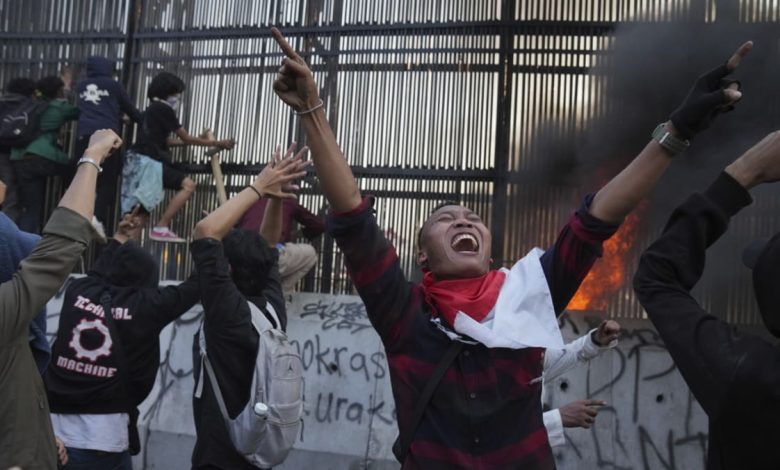CNA Explains: What is making Indonesians so unhappy about a proposed change to elections laws?

WHAT MIGHT MR JOKOWI BE TRYING TO DO?
Describing the Jokowi-Prabowo alliance as “tenuous”, Professor Vedi Hadiz, director of the Asia Institute at University of Melbourne, said that once Mr Prabowo assumes the top job, Mr Jokowi’s influence will be significantly eroded.
Prof Hadiz, who teaches Asian studies, explained what might be at work.
“All of the patronage networks that (Mr Jokowi) has built potentially could shift to Prabowo’s direction. So what he needs to do is install as many people as possible in key positions who are loyal to him to make sure that he has leverage on Prabowo,” he told CNA’s Asia First.
He noted that Mr Jokowi also succeeded in ousting the former chairman of Golkar party, the second-largest political party in the country, and replaced him with a loyalist.
“He’s clearly positioning himself so that he does not become redundant, obsolete come October 20, when Prabowo becomes president,” said Prof Hadiz.
While Mr Jokowi has traditionally enjoyed high approval ratings, a lot of his actions have become “so blatant in its intention of power-grabbing and intention of maintaining his power and influence”, noted Prof Hadiz.
He added that Indonesians who had tolerated his past actions have lost their patience for such moves.
“We have to see whether this eruption of protest is a one-off that, once this particular controversy has passed, whether it builds up into something more consistent, where some sort of civil society-based monitoring of the elites can take place,” he said.
“But the history of Indonesia recently shows that it’s very difficult to maintain these things, partly because the opposition itself is highly fragmented and not very well-organised.”
CAN THE LAWS STILL BE CHANGED?
Registration for regional elections opens on Tuesday (Aug 27), and the chances of parliament reconvening before that are “virtually zero”, said Prof Chin.
There is another deterrent for the legislature, he said: The way the issue has resonated with Indonesia’s young.
“If they (the government) try to pull a fast one, I suspect nobody is willing to pay the political price,” he said.
While passing the law before Tuesday “does seem to be logistically and logically impossible”, the reason that the protesters in Indonesia have continued to watch what is happening is that there is a “history of high-level connivance amongst the political elites”, said Prof Hadiz.
“They don’t trust anything that comes out of the mouth of the leadership, of parliament. So basically, they’re standing by to make sure that no sneak attempt to hold a session will take place,” he said.





